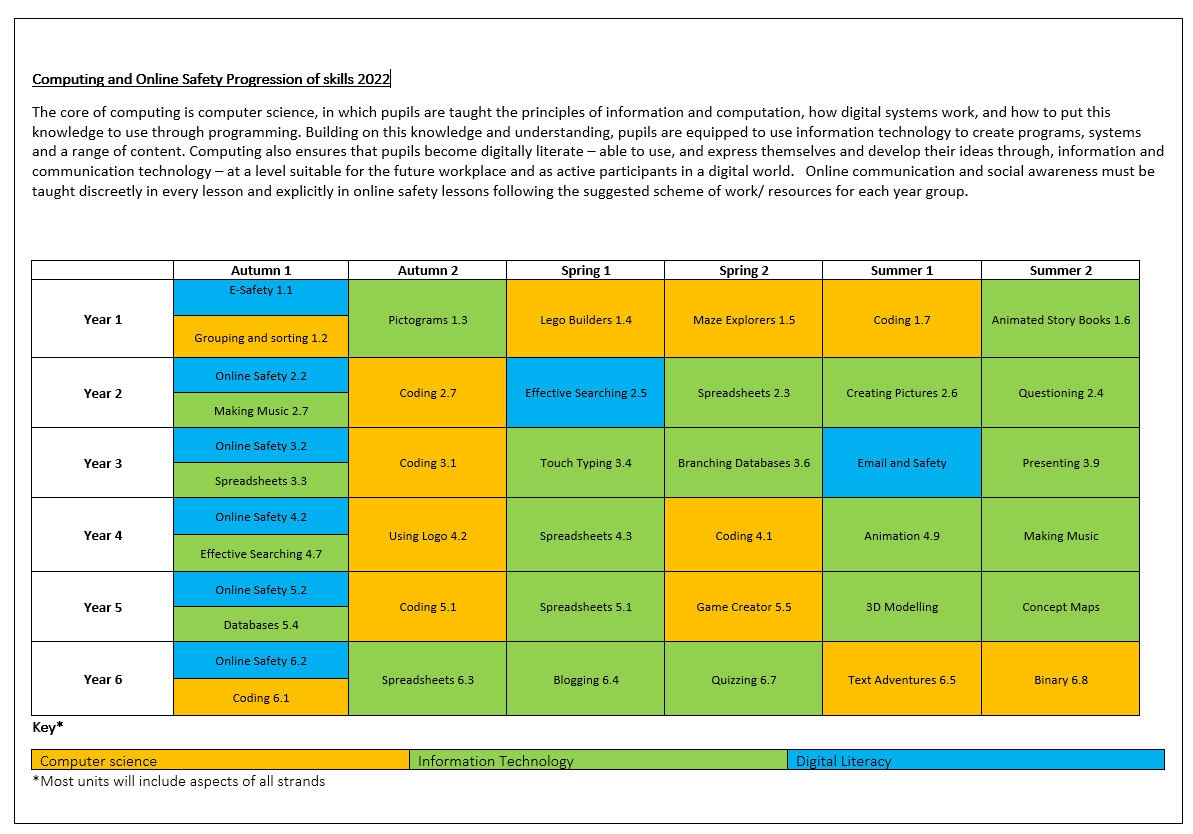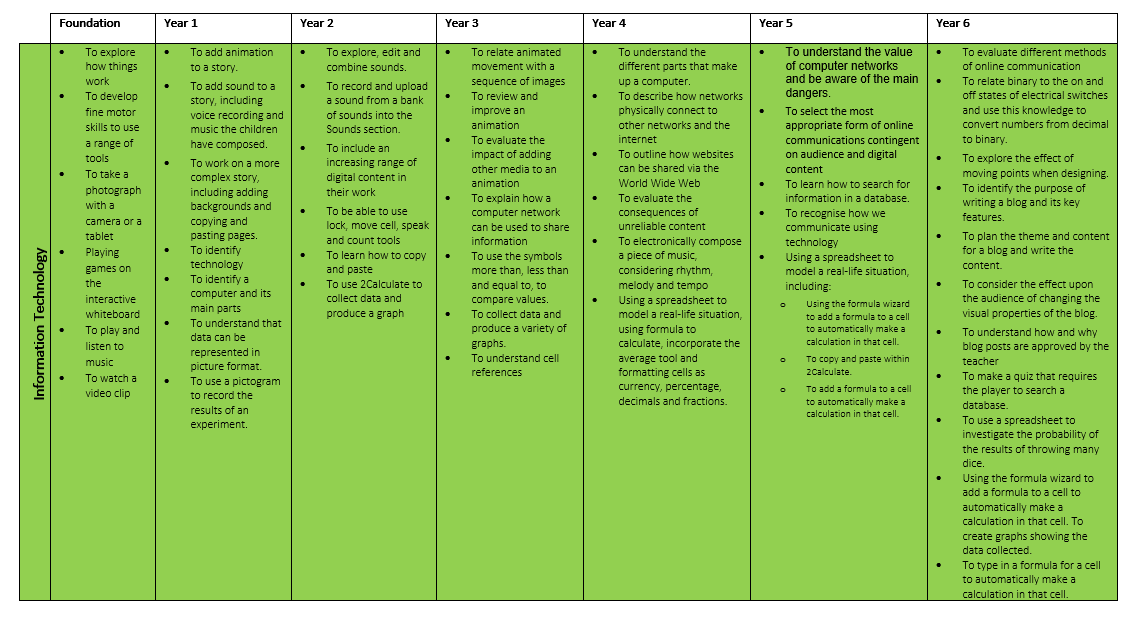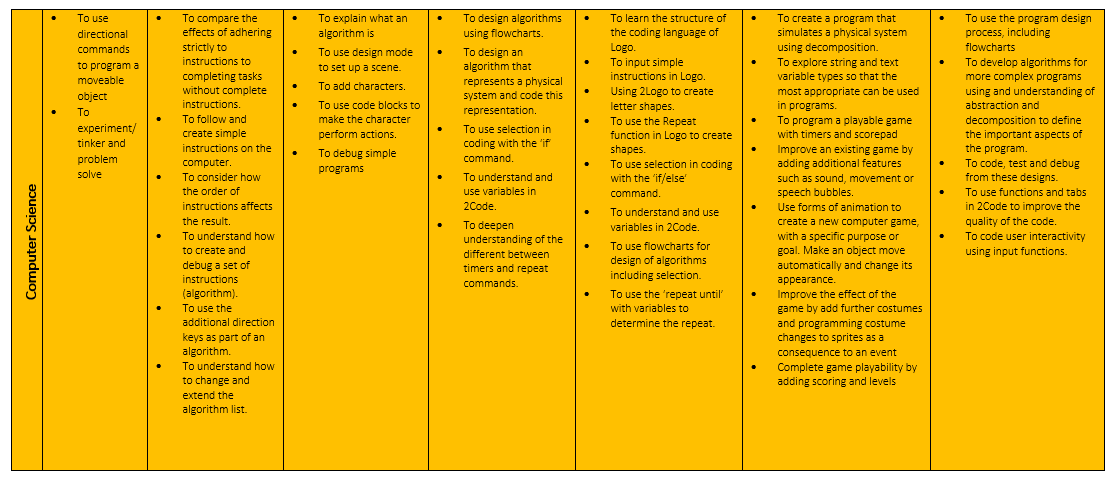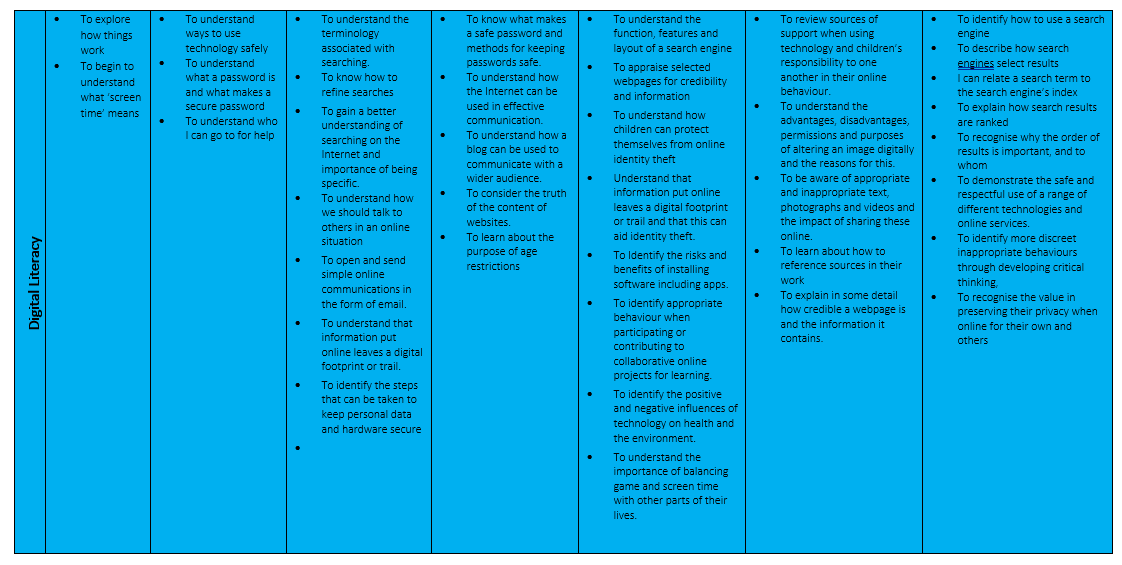Computing
Computing statement of intent:
At Emmanuel, Computing is a key component of our broad and balanced curriculum as we aspire for all children to experience ‘life in all its fullness’.
We intend for our Computing curriculum to:
- Fulfil the aims of the National Curriculum for Computing.
- Develop a love of learning by giving our pupils the opportunity to become fluent with a range of tools and skills; allowing them to become masters of technology.
- Build resilience and foster independence by teaching children how to use technology safely, responsibly and positively.
- Provide a safe space in which pupils can navigate and interact with the digital world, whilst exploring their own personal expression and identity.
Introduction to Computing
At Emmanuel, we recognise that technology will play a pivotal part in our pupils’ lives and by the time they leave Emmanuel, we aim for them to be fluent with a range of tools. The Computing curriculum at Emmanuel is therefore carefully planned and sequenced through these key concepts:
- Computer Science – the understanding of coding and programming across a range of physical devices and digital resources.
- Information Technology – the range of skills required to operate and manipulate specific programs, systems, and content.
- Digital Literacy – the knowledge required to use technology safely and to evaluate and react to any potential risks of the digital world.
Our knowledge-rich curriculum is balanced with giving pupils the opportunity to apply their knowledge creatively, which will in turn help them become competent and adaptable ‘computational thinkers’ who are able to use identified concepts and approaches in all of their learning.
Computing skills from EYFS to Year 6
At Emmanuel School, computing is taught in weekly lessons but skills learnt are applied across the curriculum. Our scheme of work is based on the ‘Purple Mash’ scheme of work, which we have adapted to reflect the needs of children in our school.
In computer science we teach children to understand and apply the fundamental principles and concepts of computer science, including abstraction, logic, algorithms and data representation.
In the EYFS, children will experiment with different types of technology and begin to use their understanding of position and direction to move different objects. This is developed throughout Key Stage 1, where children learn what an algorithm is and use this information to design a simple program, debugging and problem-solving simple errors that may occur. By the end of Key Stage 2, children will apply their knowledge to design, write and debug programs that accomplish specific goals, using a variety of features including variables, input and output devices.
As part of information technology, children learn to use and express themselves and develop their ideas through ICT for example writing and presenting as well as exploring art and design using multimedia. In the EYFS, children will experiment with a variety of different technology, from taking photographs, playing games, watching video clips and playing and listening to music. Throughout Key Stage 1, children will demonstrate an ability to organise data using a variety of programs. They will experiment with more complex digital data, such as music compositions. They will learn how to save, name and retrieve content. By the time children reach the end of Key Stage 2, they will use search technologies effectively, by applying filters and will understand how results are selected and ranked. Selecting and using a variety of software, children will make clear connections to their audience when designing and creating digital content.
Within digital literacy, children develop practical skills in the safe use of ICT and the ability to apply these skills to solving relevant, worthwhile problems for example understanding safe use of internet, networks and email. In the EYFS, children will explore how things work and will begin to understand what ‘screen time’ means. In Key Stage 1, children will make links between technology they see around them and the work they do in school. They will know the implications of online searching and begin to understand how things are shared electronically. When the children progress through Key Stage 2,
Online safety is taught across the curriculum as well as being taught as a discrete unit each year. Online safety procedures are communicated with all staff and parents.
At Emmanuel School, children have access to a wide range of devices including iPads, Chrome Books, and Bee Bots for children to apply their Computing knowledge and skills. The computing curriculum is also enhanced by opportunities to visit the Camden Learning Centre, where sessions linked to the Computing curriculum are led by specialist Computing teachers with the latest technology.
Whole School Curriculum Map

Progression of skills



Knowledge Organisers
Below you will find all the knowledge organisers for years 1-6. These include all the concepts and knowledge children will learn within each unit.
Please note that computing is taught throughout the EYFS framework, and not in discrete lessons (as in Years 1-6)
Key Vocabulary
Below you will find all the key vocabulary that is used throughout years 1-6.
